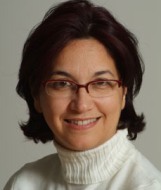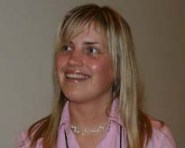Seven Seventh-day Adventist women added their voices to thousands of other women in calling for drastic improvements in the lives of women worldwide at the United Nations' 50th Session on the Commission on the Status of Women. The Adventist delegation attended from February 27 to March 3 the meeting. The meeting ran until March 10.
"The denial of women's rights touches every aspect of women's lives," explained Viola Hughes, the church's United Nations liaison specialist, who led the delegation. "The conference [considered] themes in gender equality and enhancing participation of women in development," she added.
One of the statements that came out of the meetings was: Rights violations occur whenever women are denied access to property or employment, face violence within their homes or cannot claim fair representation with their government.
More than 6,000 women came to the meeting representing non-governmental organizations, all walks of life and countries, such as Vietnam, Nigeria, Lebanon, Iraq, Burma, China and Peru.
Attending for the first time from Birmingham, Alabama (USA), was Shirley Scott who expressed the overwhelming sense of being part of a larger community. "This has been an eye-opener for me. Now I have a better perspective of what global issues women face, and I would like to use the information to educate the women in my local [church community]," she added.
Two departments at the Adventist church's world headquarters, Women's Ministries and Public Affairs and Religious Liberty, worked together to write a statement addressing the challenges women face around the world. It was first submitted to the Commission on the Status of Women last January. The statement was later modified and about 1,000 copies were distributed at this meeting. The modified statement outlines the six challenge issues women face globally: illiteracy, poverty, threats to health, workload, abuse, and lack of training, mentoring and leadership opportunities.
At the workshop entitled, Preparing Girls for Leadership, Raquel Arrais, associate director for Women's Ministries for the Adventist Church, spoke about the church's leadership certification program for women. Several people requested more information on the program, which was designed by the Women's Ministries department.
In conversation with representatives from Nigeria, Arrais, talked about female genital mutilation, trafficking of persons in Brazil and the ministry of women that she is involved in.
The meeting allowed us to network with women from all over the world on issues we have in common and also to share with them what our church is doing to help women, Arrais said.


